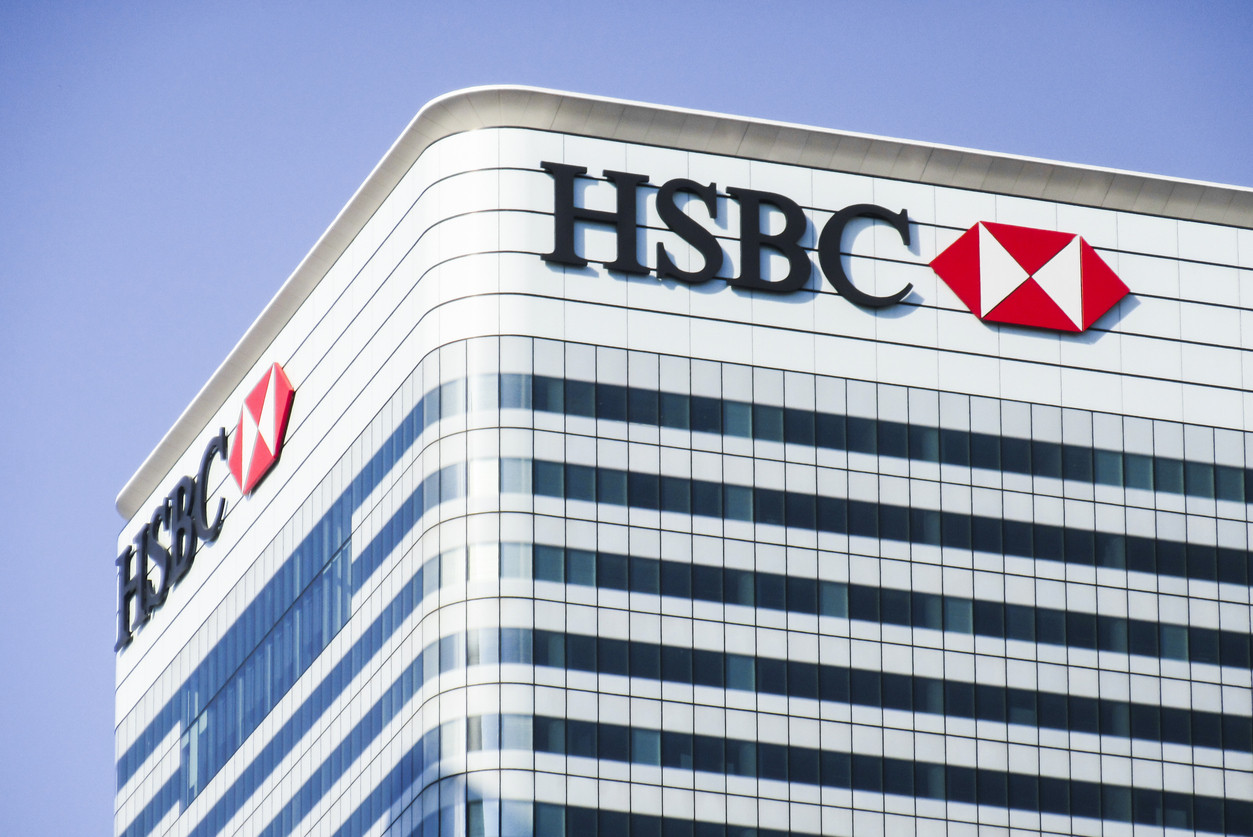HSBC Downgrades Goldman Sachs and Morgan Stanley: ‘Risk-Reward Too Unattractive’ After Recent Bank Stock Rally
HSBC analysts are signaling caution for investors eyeing Goldman Sachs and Morgan Stanley, downgrading the two banking giants after their recent surge in stock prices. Despite the rally in bank stocks following Donald Trump's victory in the U.S. presidential elections, HSBC believes the risk-reward profile for these two institutions has become “unattractive,” as market expectations for their future performance have become inflated. This shift in sentiment is rooted in the belief that, while investment banking fees are likely to rise, these increases have already been factored into the banks' current stock prices, leaving little room for further upside.
Goldman Sachs and Morgan Stanley have both benefitted from the post-election rally, with shares climbing 13% and 14%, respectively, since November 6, when the KBW Bank Index—an indicator that tracks the performance of top U.S. banks—surged nearly 10% following Trump’s victory. The surge was largely driven by investors’ optimism that Trump's policies, including tax cuts and lighter regulations, would drive economic growth, benefiting financial institutions.
Rally or Bubble?
While the rally has been significant, analysts at HSBC believe the enthusiasm surrounding Goldman Sachs and Morgan Stanley might be overly optimistic. Saul Martinez, HSBC’s lead analyst on the matter, has downgraded both banks to “hold” from “outperform,” explaining that the current valuations already account for a 30% increase in investment banking fees from 2024 levels. This means that the market is already expecting the best-case scenario for these banks. However, Martinez argues that the price has already been pushed up too high, leaving little room for further gains unless future performance significantly exceeds expectations.
One of the key concerns is the so-called “investment banking supercycle” that some analysts, such as those from Wells Fargo, have been predicting. The idea is that, as economies grow and deregulation occurs, banks like Goldman Sachs and Morgan Stanley will benefit from a prolonged period of booming demand for investment banking services. However, HSBC remains skeptical about this notion, seeing it as a more optimistic narrative than a reality in the making.
What’s Driving the Optimism?
There’s no doubt that the U.S. banking sector has been buoyed by Trump’s election victory and the anticipation of a more favorable economic environment for banks. The promise of tax cuts, deregulation, and a pro-business agenda have all contributed to investor optimism about the future of the banking industry. Additionally, the Federal Reserve’s stance on interest rates, which has been largely accommodative, further supports the idea that the economic environment for banks will remain favorable in the near term.
For Goldman Sachs and Morgan Stanley, both banks stand to benefit from higher investment banking fees, a resurgence in trading volumes, and a boost in wealth management businesses. Moreover, share buybacks—a key strategy employed by both institutions to return capital to shareholders—are expected to rise, potentially driving earnings per share (EPS) growth. HSBC analysts have raised their EPS estimates for both banks to reflect these positives, though they still believe the growth has already been priced in.
The Key Challenge: Overhyped Expectations
While the overall outlook for Goldman Sachs and Morgan Stanley remains positive, HSBC’s downgrade stems from the analysts’ belief that the current expectations are too high. In the wake of the rally, the market has priced in a lot of optimism—especially with the anticipation of rising fees from investment banking and asset management. The risk is that, when the dust settles, Goldman Sachs and Morgan Stanley may fail to meet the overly optimistic expectations, leading to a potential market correction.
This is not an isolated concern. Oppenheimer analysts have also downgraded JPMorgan Chase & Co. after the rally, warning that the bank has guided lower on net interest income—an important revenue stream for financial institutions. This highlights the broader trend of analysts becoming more cautious about the banking sector despite the strong performance of stocks in recent months.
The broader KBW Bank Index, which tracks 34 of the largest U.S. banks, has been on track for its best year since 1997. The index surged after the election, and it has managed to hold onto these gains. However, analysts like Martinez and others are warning that this surge could be unsustainable, particularly if the fundamental economic conditions don’t live up to the high expectations that are currently driving investor sentiment.
The Impact of Trump’s Policies
Trump’s policies have undoubtedly played a role in the rally of bank stocks. The expected regulatory relief and tax cuts have been seen as a boon for financial institutions, which were expected to face fewer hurdles in growing their businesses. Furthermore, the prospect of increased infrastructure spending under a Trump administration is likely to spur economic growth, which would also benefit the banking sector. As a result, Goldman Sachs, Morgan Stanley, and their peers have enjoyed a period of impressive stock performance, making investors hopeful about the future.
However, HSBC’s downgrade of these two banks is a reminder that the market’s reaction to Trump’s election may have been a bit too enthusiastic. With the current surge already baked into Goldman Sachs and Morgan Stanley’s stock prices, there is a risk that these banks won’t be able to keep up with investors’ high expectations. While the banks may still see increased investment banking activity and growing asset management revenues, the upside potential is likely to be limited, making it harder for investors to see significant gains from these stocks in the near future.
Related: HSBC to Cut Hundreds of Senior Jobs in Major Overhaul, Requiring Bankers to Reapply for Roles
Future Outlook for Goldman Sachs and Morgan Stanley
Looking ahead, Goldman Sachs and Morgan Stanley face a relatively favorable environment in terms of increasing fees from investment banking and asset management. However, as HSBC’s analysts point out, the question is whether these banks can live up to the heightened expectations now embedded in their stock prices. The market has already priced in substantial growth, meaning any deviation from this growth—whether due to macroeconomic factors, a change in government policy, or unforeseen challenges—could result in disappointing stock performance.
The broader banking sector, too, may face pressure in the coming months as investors reassess the sustainability of the current rally. Even with positive fundamentals supporting the sector, it’s important to recognize that the current stock prices may not be reflective of the long-term growth prospects for these institutions. For now, HSBC’s downgrade serves as a cautionary note to investors who may have become overly enamored with the recent rally.
Tread Cautiously with Bank Stocks
HSBC’s downgrade of Goldman Sachs and Morgan Stanley highlights the importance of caution in the current market environment. While both banks have strong fundamentals and are poised to benefit from certain growth areas, the high expectations embedded in their stock prices may make them vulnerable to disappointment. With the market already pricing in a lot of optimism, investors need to carefully weigh the risks and rewards before committing further to these stocks.
As the banking sector faces potential headwinds in the form of economic uncertainty and regulatory changes, it’s important for investors to recognize that the strong rally we’ve seen in recent months may not be sustainable. Goldman Sachs and Morgan Stanley, despite their strong positions, could face challenges if the economy doesn’t perform as expected or if regulatory changes alter the landscape for investment banking.
In short, while Goldman Sachs and Morgan Stanley may still offer growth potential, investors should remain cautious and aware of the risks. With high expectations already priced in, the upside may be limited, making it more important than ever to carefully assess the long-term prospects of these financial giants.
HSBC’s decision to downgrade Goldman Sachs and Morgan Stanley reflects concerns over overly optimistic market expectations following recent stock rallies. While both banks are expected to see a boost in investment banking fees and higher buybacks, their current stock prices seem to have already factored in much of this growth. The idea of a “supercycle” in capital markets may be too optimistic, leaving room for potential disappointment. Investors should be cautious, as the risk-reward balance for these stocks appears less favorable. It might be better to wait for more concrete signs of sustainable growth before making an investment.











